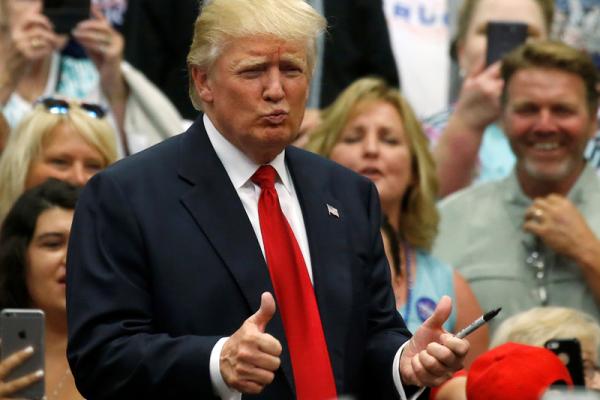Aug 24, 2016
A year later, many evangelical voters have grown to love the Donald’s roller coaster. Just as Trump divided and conquered the Republican Party, so also he has divided and conquered the religious right, the voting bloc of white conservative Christians that has been a cornerstone of the Republican Party’s outreach for decades.
Read the Full Article

Already a subscriber? Login
